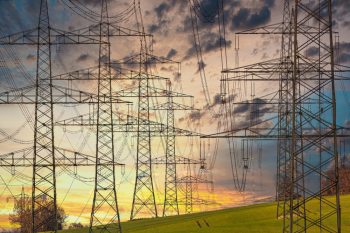What Is an Aggregator in Trade-EVs II?
With the increasing market penetration of newly-electrified components, such as electric vehicles, the provision of flexibility in the power grid and its aggregation is gaining importance. Currently, no uniform understanding of the function of an aggregator exists, resulting in different definitions. In the project Trade-EVs II (“Trade of Renewable, Aggregated and Distributed Energy by Electric Vehicles”), the project partners Forschungsstelle für Energiewirtschaft (FfE), Elektrizitätswerke Schönau (EWS), SAP, and Nextmove aggregate electric vehicle fleets and market them in a price-optimized way to reduce the operating expenses of electric vehicles. As the role of the aggregator plays a central role in the project, a consistent understanding by all project partners is required.
Previous literature defines the aggregator in different ways (see [1], [2], [3], and [4]). These definitions differ mainly in terms of the actors executing the aggregator role and the market area in which the aggregator is active. A general definition was established from the existing definitions:
Definition AggregatorAn aggregator is an energy economic role with balancing group responsibility, which bundles flexible generation and consumption units as well as storage units, and markets them on one or more electricity markets. Flexibility marketing occurs on the balancing power market, spot market, flexibility markets, or through bilateral contracts. An electricity supplier executing the aggregator role is called an integrated flexibility marketer. Other market actors taking the aggregator role are considered third-party aggregators and referred to as non-integrated flexibility marketers. An aggregator is equivalent to a virtual power plant operator. |
In the Trade-EVs II project, the electricity supplier Elektrizitätswerke Schönau (EWS), the balancing group manager and virtual power plant operator, and the data processing company Coneva carry the role of the aggregator. Coneva alone is referred to as a “data aggregator” – based on the data provider role defined in the BDEW’s model of roles for market communication in the German energy market [5].
Definition Data AggregatorA data aggregator is an actor that transfers data between consumption and generation facilities and authorized market partners, having aggregated or disaggregated the data beforehand. |
References
| [1] | Marktrollen und Prozesse beim Einsatz von flexiblen Stromlasten im Energiesystem – dena-Ergebnispapier. Berlin: Deutsche Energie-Agentur GmbH (dena), 2013 |
| [2] | Aphram, Sarah; Glotzbach, Lukas: Rechte und Pflichten der Akteure an regionalen Flexibilitätsmärkten unter Berücksichtigung der Transformation der Energieversorgung. Graz: 14. Symposium Energieinnovation, 2016 |
| [3] | Festlegungsverfahren zur Erbringung von Sekundärregelleistung und Minutenreserve durch Letztverbraucher gemäß § 26a StromNZV – Konsultation von Eckpunkten. Bonn: Bundesnetzagentur, 2017. |
| [4] | Branchenleitfaden – Regelleistungserbringung durch Drittpartei-Aggregatoren gem. § 26a StromNZV. Berlin: Bundesverband Neue Energiewirtschaft (bne), 2016. |
| [5] | Anwendungshilfe Rollenmodell für die Marktkommunikation im deutschen Energiemarkt – Arbeitsgrundlagen Marktkommunikation – Version: 2.0. Berlin: BDEW Bundesverband der Energie- und Wasserwirtschaft e.V., 2021. |

